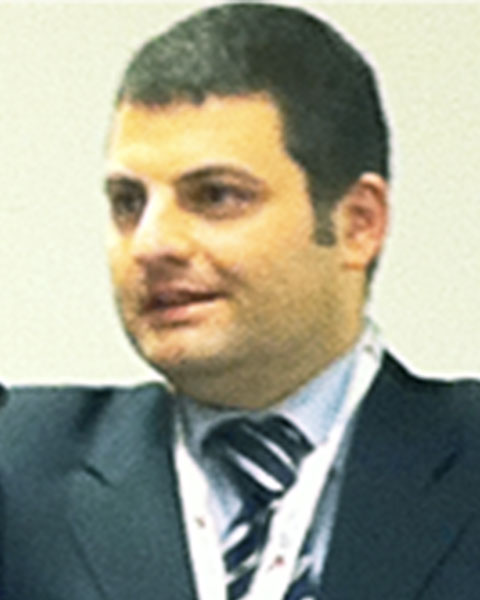Back
Poster, Podium & Video Sessions
Podium
PD49: Sexual Function/Dysfunction: Medical, Hormonal & Non-surgical Therapy II
PD49-04: 5 years follow-up outcomes of pelvic floor rehabilitation protocol in subjects with lifelong premature ejaculation: the definitive long-term evaluation
Sunday, May 15, 2022
4:00 PM – 4:10 PM
Location: Room 252
Antonio Luigi Pastore*, Andrea Fuschi, Yazan Al Salhi, Alessia Martoccia, Lorenzo Capone, Silvio Scalzo, Paolo Pietro Suraci, Gennaro Velotti, Latina , Italy, ESTER ILLIANO, Terni, Italy, Giorgio Bozzini, Milan, Italy, Serena Maruccia, Monza, Italy, Alessandro Zucchi, Pisa, Italy, Elisabetta Costantini, Terni, Italy, Antonio Carbone, Latina , Italy

Antonio Luigi Pastore, MD, PhD
Sapienza University of Rome
Podium Presenter(s)
Introduction: The aim of the study is to evaluate the 5 years follow-up long-term outcomes of pelvic floor muscle (PFM) rehabilitation in males suffering from lifelong premature ejaculation (LPE). The diagnostic tools to investigate LPE patients were intravaginal ejaculatory latency time (IELT) and the self-report Premature Ejaculation Diagnostic Tool (PEDT), as primary outcome endpoints.
Methods: This retrospective study evaluated 173 participants with LPE, and a total of 134 pts out of 173 (77%) completed the training protocol and all the 5 years follow-up. At baseline, all participants reported an IELT =60 s and PEDT score >11. Participants completed a 12-week program of PFM rehabilitation, including physio-kinesiotherapy treatment, electrostimulation, and biofeedback, with three sessions per week, with 20 min for each component completed at each session. The effectiveness of intervention was evaluated by comparing the geometric means of IELT times and PEDT scores observed from baseline, to 6, and 12 months during the intervention, and at 24, 36, 48 and 60 months postintervention, using a paired sample 2-tailed t-test, including the associated 95% confidence intervals.
Results: One hundred thirty-four participants completed the PFM rehabilitation protocol with 36 sessions of PFM. A total of 121 subjects achieved the control of ejaculation reflex, reporting a mean IELT of 176.9 s and PEDT score of 2.6 at the 12-week endpoint of the intervention, representing an increase from baseline of 55.7 s and 16.4 scores, respectively, for IELT and PEDT (P < 0.0001). Of the 121 participants who completed the 60-month follow-up, 74%, 71%, 68 and 66% reported a satisfactory ejaculation control maintenance through the follow-up evaluations at 24, 36, 48 and 60 months after completing PFM rehabilitation, respectively.
Conclusions: This is the first study on LPE treatment with 5 years follow-up. The results reported are statistically significant and might support PFM as an effective and safe treatment option for subjects with LPE. A randomized study is definitively requested to assess the role of PFM in PE.
Source of Funding: None
Methods: This retrospective study evaluated 173 participants with LPE, and a total of 134 pts out of 173 (77%) completed the training protocol and all the 5 years follow-up. At baseline, all participants reported an IELT =60 s and PEDT score >11. Participants completed a 12-week program of PFM rehabilitation, including physio-kinesiotherapy treatment, electrostimulation, and biofeedback, with three sessions per week, with 20 min for each component completed at each session. The effectiveness of intervention was evaluated by comparing the geometric means of IELT times and PEDT scores observed from baseline, to 6, and 12 months during the intervention, and at 24, 36, 48 and 60 months postintervention, using a paired sample 2-tailed t-test, including the associated 95% confidence intervals.
Results: One hundred thirty-four participants completed the PFM rehabilitation protocol with 36 sessions of PFM. A total of 121 subjects achieved the control of ejaculation reflex, reporting a mean IELT of 176.9 s and PEDT score of 2.6 at the 12-week endpoint of the intervention, representing an increase from baseline of 55.7 s and 16.4 scores, respectively, for IELT and PEDT (P < 0.0001). Of the 121 participants who completed the 60-month follow-up, 74%, 71%, 68 and 66% reported a satisfactory ejaculation control maintenance through the follow-up evaluations at 24, 36, 48 and 60 months after completing PFM rehabilitation, respectively.
Conclusions: This is the first study on LPE treatment with 5 years follow-up. The results reported are statistically significant and might support PFM as an effective and safe treatment option for subjects with LPE. A randomized study is definitively requested to assess the role of PFM in PE.
Source of Funding: None

.jpg)
.jpg)